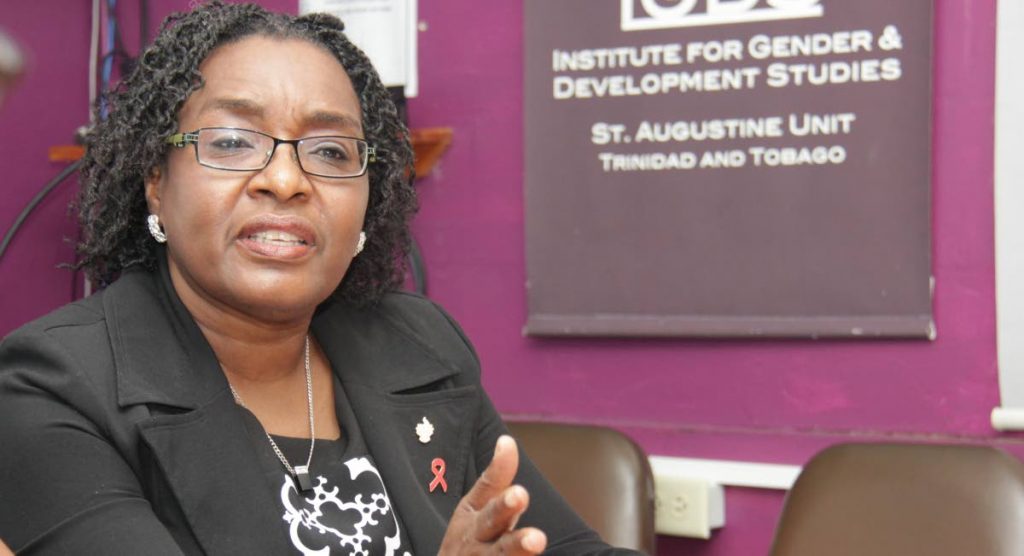Reddock: Pregnancy in the workplace seen as act of 'spite'

THE WILLINGNESS of working women to have children is not valued in TT society, said University of the West Indies Professor of Gender and Development Rhoda Reddock
She was speaking Friday during the Cipriani Labour College webinar women's empowerment as a pillar for the transformation of the trade union movement.
Reddock said in TT, pregnancy was still treated in labour as though it was done for spite but she stressed that if women did not produce children there would be no labour or future citizens.
"The value of women’s willingness to bear children is not recognised."
She pointed out that there are no adequate daycare services in workplaces, communities or homes as it assumed that it is women's responsibility to find someone to take care of their children.
"It is something employers, the State and the entire society needs to take seriously. But it is not a priority of our trade unions."
She said that in TT and the Caribbean women's income tends to be lower even in cases where they have more years of educational attainment, and this was a matter that needed to be addressed.
She also said trade unions continued to be one of the most resistant to change in the region.
"The image is of a big bad man who could shout louder than others. It makes it very difficult for women to gain the leadership roles they require."
Reddock pointed out that even in unions where the majority of workers were female the leadership continued to be male.
"The tradition is very masculinised, confrontational and very macho and it has not really given attention to the issues facing women workers with the seriousness it deserves."
She recalled for Labour Day on Friday she saw four newspaper articles about labour leader Tubal Uriah "Buzz" Butler but none on Elma Francois or other women labour leaders. She pointed that Francois was involved in the formation of four trade unions and the college's Elma Francois Institute for Research and Debate was named after her.
She stressed that trade unions need to better harness the power and vision of women to transform the movement and to make it one that really contributes to social and political transformation of the entire society.
Oilfields Workers' Trade Union (OWTU) second vice president Sati Gajadhar Inniss said that women in TT were still being paid lower than male counterparts, still facing sexual harassment and were still assigned roles and functions based on their gender. She pointed out that the National Gender Policy was still only a green paper and there needed to be gender policies in trade unions. She reported the OWTU was currently working on a gender policy.
She said there needed to be policies to remove the wage gap, improve maternity and paternity leave, address gender-based violence, and to ensure more women step forward and take up leadership within trade unions.
"Take a seat at the table and have a voice and not just sit as token representation."
Asked by a viewer what advice she would give to women facing sexual harassment in a trade union and being penalised for not complying with the male leader, Gajadhar Inniss replied that they should find someone to talk to and possibly from another trade union.
"Too many times women to stay in line, be part of the club and to fit in and they stay silent."
She added: “The only way it is going to stop is if we speak up about it.”

Comments
"Reddock: Pregnancy in the workplace seen as act of 'spite'"